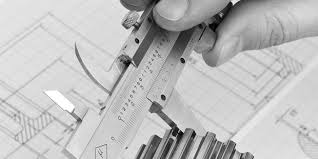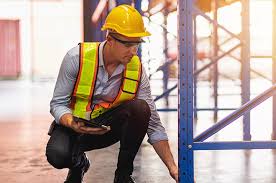Ensuring Quality Control: The Importance of Industrial Inspection
Industrial inspection is a crucial aspect of ensuring quality control in various industries. It plays a vital role in ensuring that products and processes meet the required standards and regulations. From manufacturing to construction, industrial inspection is essential in maintaining the quality and safety of products and services. This article will explore the importance of industrial inspection in ensuring quality control and the key role it plays in various industries.
Industrial inspection serves as a crucial process in ensuring quality control in manufacturing and production. It involves the examination and testing of materials, components, and products to identify any defects or deviations from specifications. This helps in maintaining the integrity and safety of the products, as well as in meeting regulatory requirements and customer expectations. Effective industrial inspection practices can lead to improved efficiency, reduced costs, and enhanced customer satisfaction. It plays a vital role in preventing potential hazards and ensuring the overall reliability and performance of industrial processes and products.
Industrial inspection is a critical component of the quality control process, as it helps to identify and address potential issues before they impact the final product. This can include inspecting raw materials, components, and finished products for defects, ensuring that they meet quality standards and specifications. By implementing rigorous inspection protocols, manufacturers can minimize the risk of faulty or substandard products reaching the market, thus protecting their reputation and avoiding costly recalls or legal liabilities. Additionally, industrial inspection plays a key role in compliance with industry regulations and standards, contributing to overall product safety and customer satisfaction.
The Importance of Industrial Inspection in Ensuring Quality Assurance

Industrial inspection plays a crucial role in ensuring quality assurance in manufacturing processes. It involves the thorough examination and testing of materials, components, and finished products to ensure they meet the required standards and specifications. This process helps to identify any defects, discrepancies, or non-conformities that may compromise the quality and safety of the final products. By conducting regular industrial inspections, manufacturers can prevent defective products from reaching the market, thereby avoiding potential safety hazards and costly recalls. It also helps to maintain consistency in product quality and customer satisfaction. Additionally, industrial inspection helps to identify areas for process improvement, leading to increased efficiency and reduced production costs. Overall, industrial inspection is essential for maintaining product quality, ensuring consumer safety, and enhancing the reputation and credibility of manufacturing companies. It is an indispensable aspect of quality assurance in the industrial sector.
Streamlining Processes: The Role of Industrial Inspection in Manufacturing
third party quality inspection

Streamlining processes in manufacturing involves optimizing the production system to minimize waste, reduce lead times, and improve overall efficiency. Industrial inspection plays a crucial role in this by ensuring that all products meet quality standards and comply with industry regulations. By using advanced inspection techniques such as automated vision systems and precision measurement tools, manufacturers can identify and rectify defects early in the production process, preventing costly rework and customer returns. Additionally, real-time data from inspections can be used to continuously monitor and improve manufacturing processes, leading to higher productivity and better product quality. Overall, industrial inspection is an essential component of streamlining processes in manufacturing.
Improving Safety Standards Through Industrial Inspection Protocols
third party inspection company in egypt

Improving safety standards through industrial inspection protocols involves implementing thorough and regular inspections of equipment, facilities, and processes to identify and address potential safety hazards. This includes adhering to established safety regulations, conducting proper training for personnel, utilizing appropriate safety equipment, and ensuring compliance with industry standards. By establishing and implementing comprehensive inspection protocols, organizations can effectively minimize the risk of accidents and injuries within the industrial setting, ultimately creating a safer work environment for all involved.
The Future of Industry: Advancements in Technology for Industrial Inspection

The future of industry involves advancements in technology for industrial inspection. This includes the development of innovative tools and processes for inspecting and monitoring equipment, machinery, and infrastructure. These advancements are driven by the need for more efficient and accurate inspection methods, as well as the demand for increased automation and digitization in industrial settings. Some of the key technologies that are shaping the future of industrial inspection include drones, robotics, artificial intelligence, and advanced sensor systems. These technologies are revolutionizing the way inspection is conducted, enabling faster, more accurate, and cost-effective methods for ensuring the safety and reliability of industrial assets. Additionally, these advancements are also leading to the development of new inspection standards and regulations, as well as the creation of new job roles and skillsets within the industrial inspection industry. Overall, the future of industry heavily relies on the continued evolution and integration of technology for industrial inspection.
The Economics of Industrial Inspection: Cost-Effective Solutions for Businesses
"The Economics of Industrial Inspection: Cost-Effective Solutions for Businesses" is a comprehensive study that explores the financial aspects of industrial inspection processes. This publication discusses the costs associated with implementing and maintaining a robust inspection program, as well as the potential savings and benefits that can be achieved through proactive inspection practices. It also provides insights into the cost-effectiveness of various inspection technologies and strategies, helping businesses make informed decisions about their inspection investments. Overall, this resource offers valuable information for organizations looking to optimize their inspection processes while maximizing their economic returns.
Compliance and Regulation: How Industrial Inspection Helps Businesses Stay Legal
Compliance and regulation are essential aspects for businesses to operate legally and ethically. Industrial inspections help businesses stay compliant with regulations by ensuring that their operations, equipment, and facilities meet the required standards. These inspections are conducted by regulatory bodies or third-party inspection companies to verify compliance with safety, quality, and environmental regulations. By proactively addressing potential non-compliance issues, businesses can avoid costly fines, legal actions, and damage to their reputation. Industrial inspections also help businesses identify areas for improvement and implement best practices to ensure ongoing compliance with regulations. Overall, industrial inspections play a crucial role in helping businesses maintain legal and ethical operations.
The Impact of Industrial Inspection on Productivity and Efficiency
Industrial inspection plays a significant role in enhancing productivity and efficiency in manufacturing processes. By ensuring the quality and safety of products, industrial inspection helps prevent costly rework, production delays, and product recalls. This ultimately leads to increased productivity and cost savings for the company. Additionally, regular inspection of equipment and machinery helps minimize downtime and maintenance costs, leading to improved operational efficiency. Overall, the impact of industrial inspection on productivity and efficiency is crucial for maintaining high-quality standards and reducing waste in the manufacturing industry.
Going Beyond Defect Detection: The Value of Industrial Inspection in Quality Control
"Going Beyond Defect Detection: The Value of Industrial Inspection in Quality Control" delves into the broader importance of industrial inspection beyond just identifying defects. The article discusses how industrial inspection can contribute to overall quality control by providing valuable data and insights that can be used to improve production processes, prevent future defects, and ensure consistent product quality. It explores the various ways in which industrial inspection technology and techniques can be utilized to enhance quality control efforts and drive continuous improvement in manufacturing operations. The article also touches on the benefits of investing in advanced inspection technologies and the potential return on investment that comes from a more comprehensive approach to quality control.
